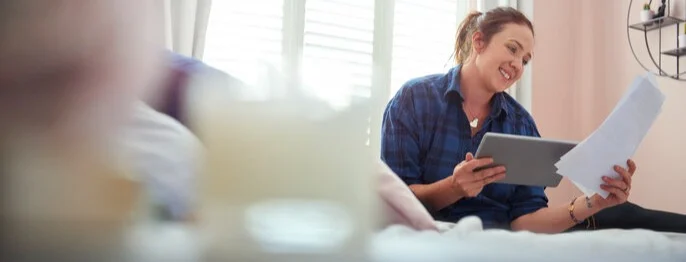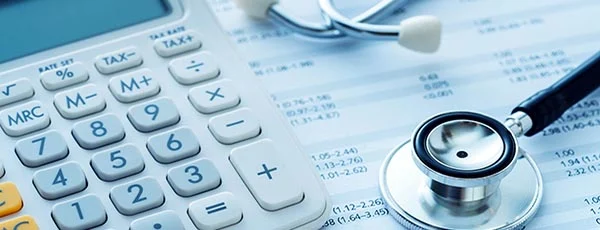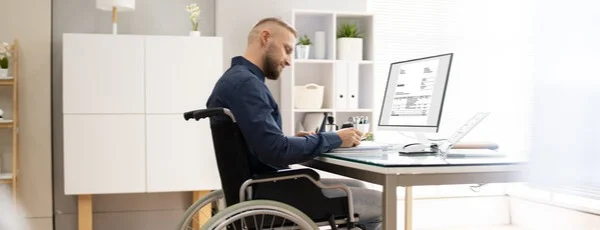- You can get financial assistance for a variety of needs from the government if you meet certain eligibility requirements.
- There are different programs for different needs, like paying utility bills, affording rent, or buying groceries.
- Find helpful links to government programs that can help you pay bills.
- Start your FREE debt assessment
Table of Contents
- How to get help with utility bills
- Financial assistance with home energy bills
- What to do if you need help with your rent bill
- Finding help paying your phone bill
- Financial assistance for medical bills
- Getting help with transportation costs
- Financial assistance with other household bills
- Summary table: Where to look for help paying bills
- Getting help with credit card bills
The rising cost of living makes paying your bills an ongoing challenge. Fortunately, if you need help paying bills, there are answers.
This article will give examples of several ways you can get help paying bills. Financial assistance programs are available for a number of different routine household bills. These include those that are most essential to the safety and comfort of your family.
This article will focus on national programs, since they will be relevant to the greatest number of people. You may also be able to find help from state and local government, and from charitable organizations in your community.
How to get help with utility bills
Help is available if you have trouble paying your utility bills. Utilities are the essential services that keep your home running. These may include the supply of electricity, gas, and water.
Help paying your water bills is available through a national program called the Low Income Household Water Assistance Program (LIHWAP).
LIHWAP is designed to help households that are paying a high proportion of their income on drinking or wastewater bills.
Eligibility is determined on a state, territorial, or tribal basis, depending on where you live. Grants are not provided directly to individual households. Instead, they are made to local water authorities. Those local providers then use the grant money to help eligible households pay their water bills. So, you would apply for help from your local water service provider.
To find out if your local water authority has received a grant that may be used to help you pay your water bill, visit the U.S Department of Health and Human Services water help website. This has a tool you can use to search for LIHWAP availability in your area.
Financial assistance with home energy bills
The Department of Health and Human Services provides the Low Income Home Energy Assistance Program (LIHEAP) to help families maintain access to home energy. .
The LIHEAP program can help you pay your energy bills and prevent power shutoffs. It may even provide financial assistance for improvements that make your home more energy efficient.
LIHEAP assistance is provided by the federal government through each state, territorial, or tribal government. Those local authorities determine eligibility requirements for their energy assistance programs. LIHEAP guidelines generally direct aid to low-income families paying a high proportion of their household income towards energy bills.
To find out how to apply for LIHEAP aid in your area, go to the Department of Health and Human Services LIHEAP Clearinghouse website. This provides a list of services provided, along with contact information and a search tool to help you locate those services in your area.
What to do if you need help with your rent bill
Rental assistance may be available through the federal government’s Emergency Rental Assistance (ERA) program.
The ERA program can provide financial help with rent bills, utilities, trash removal, and internet service. Under some circumstances, it can even provide help with moving expenses if you are forced to relocate.
ERA money may be available to both renters who need help or landlords that have tenants who can’t pay their rent.
The federal government does not distribute this funding directly. Instead it works through state and local agencies. For information about applying for the ERA program in your area, the Consumer Financial Protection Bureau has a webpage with a search tool and more information about the program.
Finding help paying your phone bill
If you are having trouble paying your phone bill, help from the federal government may be available. The Federal Communications Commission’s (FCC) Lifeline program helps low-income families get discounted phone service.
This can include wireless or landline service. Some people may even qualify for a free phone.
The FCC does not provide this aid directly to individuals. Instead, it works through local telephone service providers. You would need to find a participating provider in your area and apply through them. A good place to start could be by asking your current phone service provider if they participate in the FCC’s Lifeline program.
To apply, you would need to show identification and information about your income or participation in a federal assistance program.
Once you are in the Lifeline program, you have to check back with your telephone service provider once a year to prove that you are still eligible.
To find out about getting Lifeline assistance in your area, visit the search tool provided by the Universal Service Administrative Co. Simply enter your zip code to get started.
Financial assistance for medical bills
Various federal programs are designed to help people with medical expenses. Some of the most prominent ones are described below. Which one may be suited to your needs depends on your situation.
Medicaid
Medicaid is a joint federal and state program designed to provide medical assistance to people with low incomes or other qualifying circumstances.
The eligibility requirements for Medicaid are determined by each state. For information about applying for Medicaid in your state, check out the search tool on the federal government’s Medicaid website. Simply click on your state to find who to contact in your area for more information.
Children’s Health Insurance Program (CHIP)
The Children’s Health Insurance Program can help families who might otherwise fall through the cracks when it comes to getting health insurance for their kids.
CHIP can provide health insurance to children of families with incomes too high to qualify for Medicaid, but too low to afford private health insurance.
Eligibility requirements vary by state. Also, CHIP goes by different names in different states. Don’t be confused. You can find out how to apply in your state using the map search tool on the InsureKidsNow.gov website.
Medicare
While Medicaid is intended for low-income families in general, Medicare is a program for people over age 65, people with disabilities, or people with end-stage kidney disease.
To find out more about different Medicare coverage options and how to apply, visit the Medicare page at USA.gov.
Health Insurance Marketplace
Under the Affordable Care Act, health insurance marketplaces were created in each state to help people compare different health insurance options. These marketplaces allow you to find the most cost-effective insurance for your needs. In some cases, you may qualify for help paying for health insurance.
To find your local health insurance marketplace and information about enrollment, visit the HealthCare.gov website.
Getting help with transportation costs
The federal government does provide support to improve public transportation in various communities. However, there is no comprehensive federal program to help individuals pay for transportation costs.
Even so, there may be financial assistance for transportation available in your area. One place to start is by contacting your state welfare office. You can use the Help for Families map tool from the federal Office of Family Assistance to find information.
Another possibility is to contact your local bus, train, or other transit authority. In many cases, they can offer discounts and other financial assistance programs to people in need.
Financial assistance with other household bills
There may be financial assistance for some other household bills not addressed in previous sections of this article. The most comprehensive type of help may be through the federal government’s Temporary Assistance for Needy Families (TANF) program.
The TANF program is commonly referred to as welfare. It provides cash payments that can be used for a variety of needs. These can be used for things like groceries, clothing, and other household needs.
TANF is a federally-funded program, but it is administered through the states. That means eligibility requirements and the way to apply depend on where you live.
To find information about TANF in your state, use the Help for Families map tool from the federal Office of Family Assistance.
Another federal program that is run through state agencies is the Supplemental Nutrition Assistance Program (SNAP). Some people still refer to this program as food stamps. These days, the benefits are provided through an Electronic Benefits Transfer Card that you use like a debit card.
This card can be used to buy food at authorized grocery stores. To see if you are eligible for food assistance through SNAP and where to apply in your area, visit the SNAP page on Benefits.gov.
Summary table: Where to look for help paying bills
| Type of Assistance Needed | Type of Bill |
|---|---|
| Water bills | The Low Income Housing Water Assistance Program. Look for availability in your area on the Department of Health and Human Services water help website. |
| Energy bills | The Low Income Housing Energy Assistance Program (LIHEAP). Look for availability in your area on the Department of Health and Human Services LIHEAP Clearinghouse website. |
| Rent payments | The Emergency Rental Assistance (ERA) program. This is managed through state and local agencies. Find out about availability in your area through the Consumer Financial Protection Bureau’s rental assistance page. |
| Phone bills | The Lifeline program provides help through local telephone service providers. Find a participating phone company in your area using the Universal Service Administrative Co. search tool. |
| Medical bills for low earners | The Medicaid program is administered through each state. Find info about applying in your state using the map tool at Medicaid.gov. |
| Health insurance for children of low-income families | CHIP is a general name for child health insurance that is offered through different programs in each state. To find information about getting child health insurance in your state, use the map tool at InsureKidsNow.gov. |
| Medical bills for seniors and people with disabilities | Medicare is a health insurance program for people over 65 and people with disabilities or end-stage kidney disease. For information about coverage, visit the Medicare page at USA.gov. |
| Health insurance for all | Under the Affordable Care Act, each state created a health insurance marketplace to help people find the best insurance options for their needs. To find the marketplace in your state, visit HealthCare.gov. |
| Transportation costs | While there is no one federal program for this, check with your state’s welfare office to see if assistance is available in your area. Find contact information for your state using the federal Office of Family Assistance map tool. You might also contact local public transportation providers for information about discounts and financial aid. |
| Other household bills | Your most likely source of other financial assistance might be the Temporary Assistance for Families in Need program, otherwise known as welfare. It is a federal program offered through state agencies. For information about applying in your area, use the federal Office of Family Assistance map tool. |
| Food assistance | The Supplemental Nutrition Assistance Program (SNAP) provides needy families with funding for eligible food products. Find out more on the SNAP page at Benefits.gov. |
Getting help with credit card bills
There are no specific federal programs to provide help paying credit card bills. However, there may be privately offered options that can help. Note that these don’t provide money to pay your bills, but may help you figure out the best way to handle your debt.
Ask your credit card company
If you can’t pay a credit card bill, ask your credit card company if they can give you a break on payment terms. If you can demonstrate an intent to pay, they may give you more time, lower a payment, or waive a fee.
Debt management
Debt management programs help organize your debt and try to negotiate easier payment terms with your creditors. There is generally a fee for this kind of service.
Debt settlement
A debt relief service might negotiate with your creditors to get them to reduce the amount you owe. Typically, the debt relief company will keep some of the amount they get a creditor to forgive. Also, any debt that is forgiven may be considered taxable income. Plus, having debt forgiven hurts your credit score and stays on your credit record for several years.
Free up cash each month with Freedom Debt Relief

Ozzy S., Freedom client
“Right away, I had more money each month because of program costs so much less than what I was paying on my minimums.”
Actual client of Freedom Debt Relief. Client’s endorsement is a paid testimonial. Individual results are not typical and will vary.
Are there any organizations that help with bills?
Various federal and state agencies are mentioned in this article, and many cities and counties also have local programs to help the needy. In addition, most communities have charitable organizations that provide some forms of assistance.
How can I get free money from the government?
Most financial assistance for paying bills is provided in the form of subsidies for specific expenses rather than in cash. However, you may be eligible for welfare assistance to provide cash support.
How can I get free money to pay my bills?
Generally speaking, you have to demonstrate eligibility. That means meeting certain residency requirements and having a genuine need. The table in the previous section gives information on where you can go to apply for financial support.
Recommended Reads









